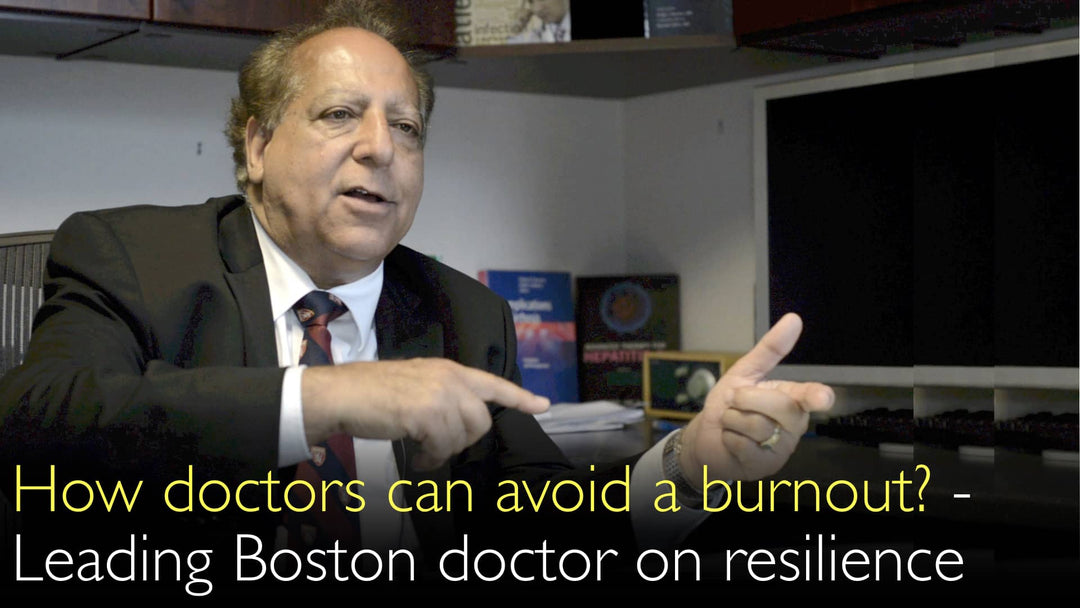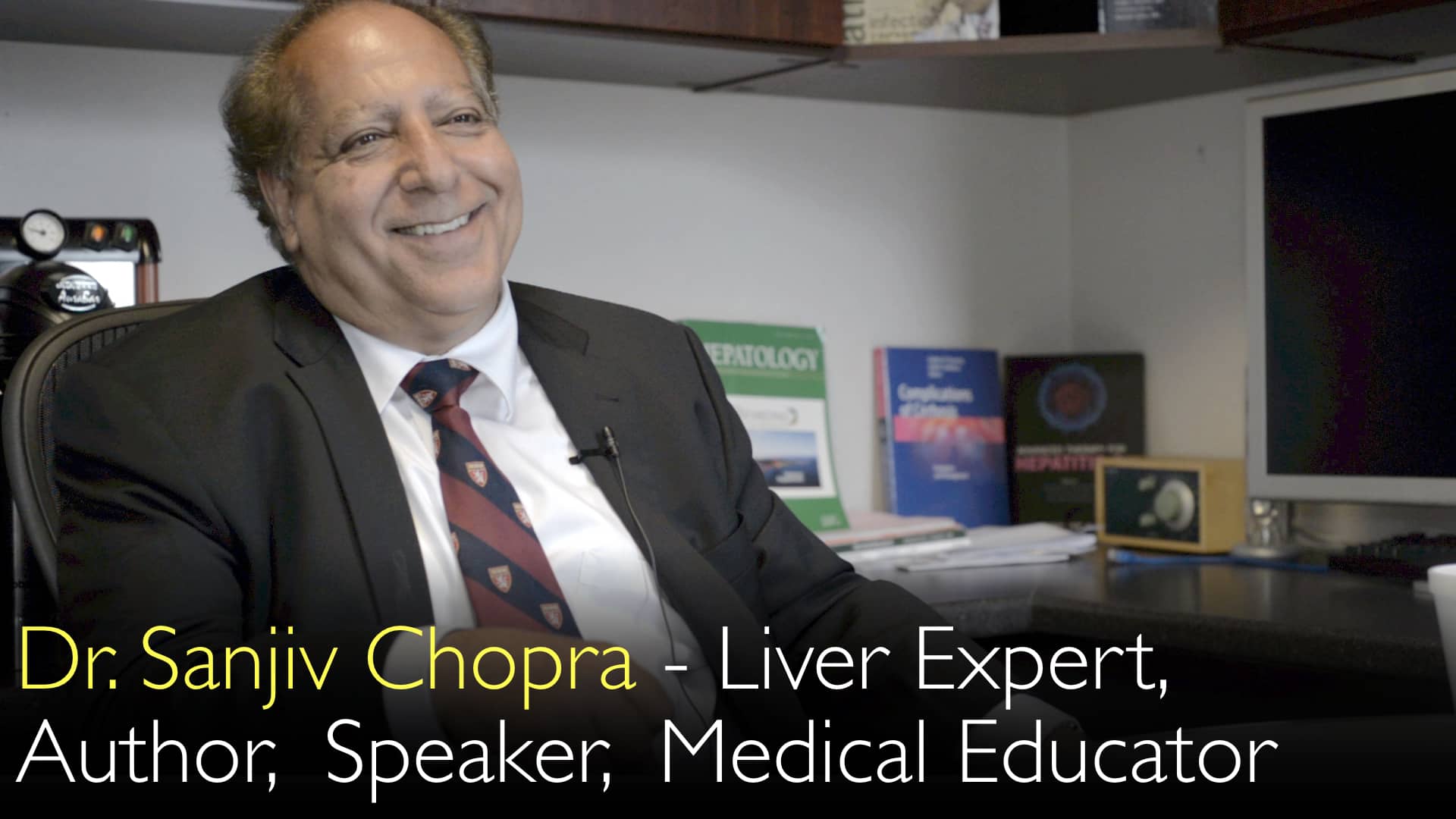מומחה מוביל בתחום רווחת הרופאים ומניעת שחיקה, ד"ר סנג'יב צ'ופרה, MD, מסביר את שיעורי ההתאבדות המדאיגים בקרב אנשי מקצועות הרפואה ומתאר אסטרטגיות מעשיות ויעילות בעלות נמוכה למוסדות רפואיים לטיפוח חוסן. הוא מדגיש את החשיבות הקריטית של הכרה, גמישות וחיבור חברתי להשבת השמחה ברפואה ולמניעת התוצאות היקרות של שחיקה, כולל טעויות רפואיות ותחלופת צוות גבוהה.
מניעת שחיקה בקרב רופאים: אסטרטגיות לחוסן ושמחה ברפואה
קפיצה לפרק
- סטטיסטיקות שחיקה מדאיגות
- אסטרטגיות פשוטות לאישור וערך
- יצירת סביבה תומכת
- כוחה של הגמישות
- למידה מגוגל
- משבר השחיקה של סטודנטים לרפואה
- לקחי חיים מטיפול פליאטיבי
סטטיסטיקות שחיקה מדאיגות
שחיקת רופאים מהווה משבר חמור במערכת הבריאות, עם סטטיסטיקות שתוארו על ידי ד"ר סנג'יב צ'ופרה כ"מדהימות". שיעור ההתאבדויות among רופאים גברים בארצות הברית גבוה פי 1.2 מהממוצע הלאומי. בקרב רופאות, הסיכון חמור אף יותר, עם שיעור התאבדויות הגבוה פי 2.2. רופאי שיניים עומדים בפני הסיכון הקיצוני ביותר, עם שיעור התאבדויות הגבוה פי חמישה מהממוצע הלאומי.
ד"ר צ'ופרה מייחס את המגפה הזו לעובדה שרופאים עובדים קשה יותר מאי פעם בתוך עומס אדמיניסטרטיבי ועבודה משרדית גוברים. גורם קריטי הוא התחושה שהמאמצים האדירים שלהם אינם מוכרים או מקבלים תוקף, מה ששוחק את השמחה המקצועית ותורם לתחושת בידוד וייאוש.
אסטרטגיות פשוטות לאישור וערך
המאבק בשחיקת רופאים מתחיל במעשים פשוטים וזולים של מתן תוקף וערך שגורמים לצוות להרגיש מוערך. ד"ר סנג'יב צ'ופרה מציע כי בתי חולים יספקו גישה קלה למים, קפה וחטיפים בריאים כמו אגוזים או פירות לעובדיהם. בעוד שמדובר בהוצאה minor עבור המוסד, מחוות אלו מדגימות אכפתיות ויכולות לשפר משמעותית את המורל היומי.
הטיעון הכלכלי עבור אמצעים אלו משכנע. ד"ר סנג'יב צ'ופרה מציין כי עלות החלפת רופא או אחות שחוקים בודדים מגיעה לעשרות אלפי דולרים. יתרה מכך, שחיקה מקושרת ישירות לסיכון מוגבר לטעויות רפואיות, החושפת אנשי מקצועות הבריאות והמוסדות שלהם לתביעות רשלנות רפואית יקרות.
יצירת סביבה תומכת
אסטרטגיה יסודית לבניית חוסן רופאים היא יצירת חדר שקט ייעודי within בית החולים. ד"ר סנג'יב צ'ופרה מדגיש כי מרחב זה מאפשר לצוות לעשות מדיטציה, להתפלל, לשבת בדממה או להאזין למוזיקה. זה מספק איפוס mental קריטי במהלך shift מלחיץ, ומציע מקום מקלט למיינדפולנס ולהתרכזות מחדש.
גישה זו מכירה בכך שסביבת העבודה המלחיצה של מערכת הבריאות דורשת מרחבים intentional ל decompression. מתן משאב כזה הוא דרך מוחשית bagi הנהלת בית החולים להראות שהיא מעניקה עדיפות ל well-being mental של הצוות שלה over פרודוקטיביות בלתי פוסקת, ותומכת ultimately ב career sustainability ארוך טווח.
כוחה של הגמישות
גמישות institution היא תרופה חזקה לשחיקת רופאים. ד"ר צ'ופרה מספק דוגמה clear: להתאים את עצמך לאם עובדת שצריכה לעזוב בשעה 15:30 פעמיים בשבוע כדי לאסוף את ילדה מהמעון. במקום לאלץ אותה למרוץ מלחיץ נגד התנועה, הפתרון יכול לכלול התאמת שכר קלה או השלמת השעות בסוף שבוע.
ד"ר סנג'יב צ'ופרה also תומך במודלי staffing יצירתיים, כמו העסקת שני רופאים part-time במקום אדם full-time אחד. גמישות זו עוזרת למנוע שחיקה על ידי מתן אפשרות ל work-life integration טוב יותר, הפחתת הלחץ המתמיד שמוביל לתשישות ו disengagement מהמקצוע.
למידה מניסוי האישור של גוגל
הערך של social connectedness וגמולים חווייתיים over בונוסים כספיים מומחש בניסוי שד"ר סנג'יב צ'ופרה מדגיש מגוגל. במקום לתת בונוסים כספיים גדולים, החברה לקחה את המובילים performance שלה ואת בני/בנות הזוג שלהם לטיול של שמונה ימים בקוסטה ריקה עם all-expenses-paid.
התוצאה הייתה overwhelming. המשתתפים דיווחו שהטיול, שעלה 18,000$ per couple, היה בעל ערך רב יותר מצ'ק של 100,000$ או 200,000$. ד"ר סנג'יב צ'ופרה מציין כי החוויה הזו fostered networking, חיזקה מערכות יחסים אישיות ויצרה זכרונות מתמשכים - נתנה תוקף לעובדים בדרך שכסף cannot. הוא קורא למוסדות רפואיים ליישם עיקרון זה through הכרה פומבית, פרסים ומיילים החוגגים הישגים individual.
משבר השחיקה של סטודנטים לרפואה
באופן מטריד, משבר השחיקה אינו מוגבל לרופאים active; הוא מתחיל much earlier. ד"ר צ'ופרה מצטט מחקר recent שהראה ש 60% מסטודנטים year-third לרפואה בארצות הברית already מפגינים elements של שחיקה. individuals אלו even לא started officially את הקריירות הרפואיות שלהם, yet מערכת ההכשרה eroding את well-being שלהם.
כנגד זאת, ד"ר סנג'יב צ'ופרה קורא לשינוי cultural כדי להחזיר את השמחה לרפואה. הוא ממליץ לחגוג ניסים רפואיים והישגים, כמו מחקר stem cell פורץ דרך או transplant donor live. שיתוף סיפורים על student medical שעשה diagnosis brilliant שהעמיד in תפקיד clinicians מנוסים helps לבנות מחדש תחושת purpose and wonder שהיא essential לחוסן.
לקחי חיים מטיפול פליאטיבי
ד"ר צ'ופרה מסיים עם perspective חזק על priorities חיים, הנלמד מהחרטות של those בטיפול פליאטיבי. הוא משתף את חמשת החרטות הנפוצות ביותר: "הייתי צריך לנסוע יותר", "הייתי צריך לבלות יותר זמן עם החברים שלי", "הייתי צריך להיות האדם הגדול יותר ולומר אני מצטער", "הייתי צריך את האומץ לרדוף אחר החלומות והשאיפות שלי", ו"הייתי צריך להגיד אני אוהב אותך יותר often".
כפי שד"ר סנג'יב צ'ופרה מציין, אף אחד על ערש deathbed שלו אינו מתחרט על כך שלא עבד harder or not made more money. הלקח עבור רופאים וכל professionals הוא profound. הריאיון עם ד"ר אנטון טיטוב מסתיים עם call to action urgent זה: לשלב ערכים אלו into החיים שלנו now - לתת prioritas ל relationships, courage, and love - כדי להימנע מלהחזיק באותן חרטות later.
תמליל מלא
ד"ר סנג'יב צ'ופרה: אני רוצה להזכיר דבר אחד נוסף ששאלת עליו: מה אנחנו עושים עם שחיקת רופאים וחוסן? זה משהו שאני מדבר עליו הרבה, כי הסטטיסטיקות are mind-boggling. שיעור ההתאבדויות among רופאים גברים באמריקה is 1.2 times higher than הממוצע הלאומי. For women doctors, suicide is 2.2 times higher. For dentists, suicide is 5 times higher than הממוצע הלאומי.
What are we doing? אנשים מרגישים that they are working harder and harder, there is a lot of paperwork they have to do, and people are not recognizing and validating them.
There are simple things that we can do to validate human beings, to bring back the joy in medicine, for people to feel valued and not experience burnout. They include having people have access to water, coffee, and some nuts or fruit. That's not expensive for a hospital to do, compared to burnout.
Burnout will lead to people just being replaced. It costs many tens of thousands of dollars to replace one individual physician or nurse. If you burn out, you make mistakes. You are now subject to litigation and malpractice.
We need to create an environment in the hospital where people can do that. Number two, you need to have a quiet room where they can go meditate, pray, just sit silently, or listen to some music.
Number three, we need to allow much more flexibility. If a woman is working in a hospital and she has to pick up her child from daycare twice a week—the other three days maybe the husband is picking up—she has to be there at five o'clock. We cannot have her last appointment at four o'clock or at 4:15.
Now she's running late, now she's in traffic, now the daycare people are unhappy. Let her leave two days in the week at 3:30, and then one Saturday in the month she can make up and see a few patients, or she can take a slight cut in her salary. You can help employee peers; you can employ part-time two people instead of one full-time person.
Hydration, silence, meditation, mindfulness, exercise, flexibility in the hours—and then validating it. Google did something very interesting years ago. Instead of giving their leading people a bonus of $100,000 or $200,000—this is not unusual for them—they said, "All of you are coming and bring a significant other, and we are going to take you to Costa Rica for eight days, all paid expenses."
They had a great time in Costa Rica, they networked, they met colleagues they'd only seen and met by email, they had their significant others. Then they were asked, "Which was more valuable for you? This trip to Costa Rica or previous year when you got a check with the bonus?" They all said, "Trip to Costa Rica."
Social fabric, social connectedness is so important in our lives. But Google validated this by doing this little experiment. It cost Google $18,000 per couple, much less than $100,000. Not that Google needs to save money, right? But it shows the value of recognizing people, giving them an award, giving them a certificate saying "you are a good person," sending an email to the whole group saying, "So and so, our social worker today in the transplant service, did an amazing job! My god, she was so good and the patient's family is so grateful..."
Just do that—it is simple things that we can do. There's a recent study by my colleague at the Brigham: 60% of third-year medical students in our country are expressing elements of burnout. Third-year medical students haven't even started their profession! What are we doing to them?
We have to bring back the joy by celebrating medicine, by telling stories about the baby that was born twice, or this guy—my God—stem cell research, or this guy did a live donor transplant—look what happened! Or this medical student made this amazing diagnosis that the rest of us were struggling with.
Trying to rush a little bit less. Yes. Slow down! I'll finish with five things people say. These are the five things: "I should have traveled more, I should have spent more time with my friends, I should have been the bigger person and said I'm sorry, I should have had the courage to pursue my dreams and aspirations, I should have said I love you more often!"
Who says these five things? People in hospice when they are asked, "What are your greatest regrets in life?" These are the five things. Nobody says, "I should have worked harder. I should have made more money. I should have lived in a big mansion. I should have driven a new Tesla every six months." Correct?
These are the greatest regrets. The point of this is we should be doing it now. Let's not have these regrets on our death bed.
ד"ר אנטון טיטוב: פרופסור צ'ופרה, thank you very much for this very fascinating conversation! It will be of great interest to people around the world. We hope to come back to you in the future! Thank you very much!
ד"ר סנג'יב צ'ופרה: Thank you so much, great to be with you!





